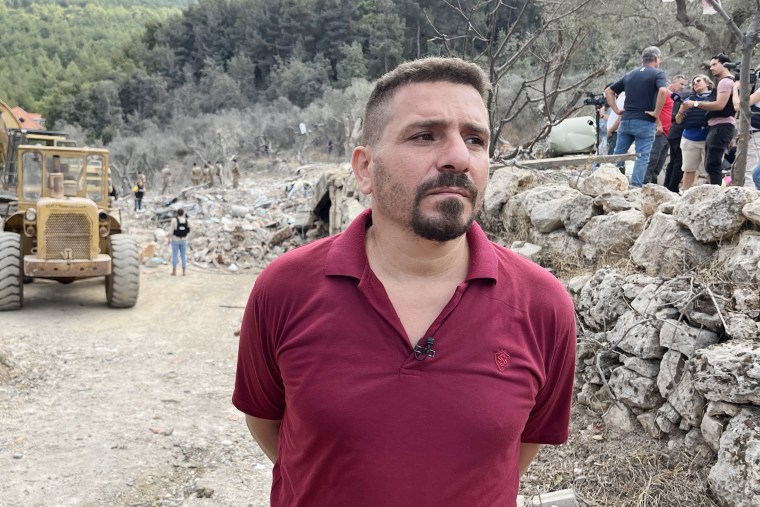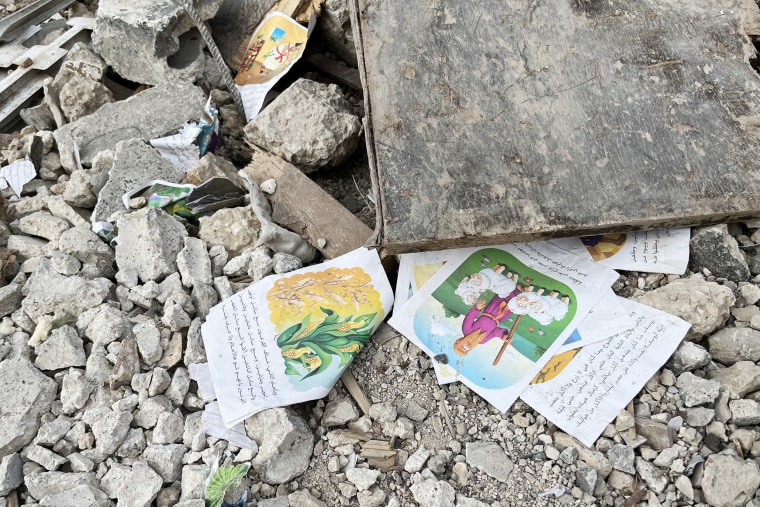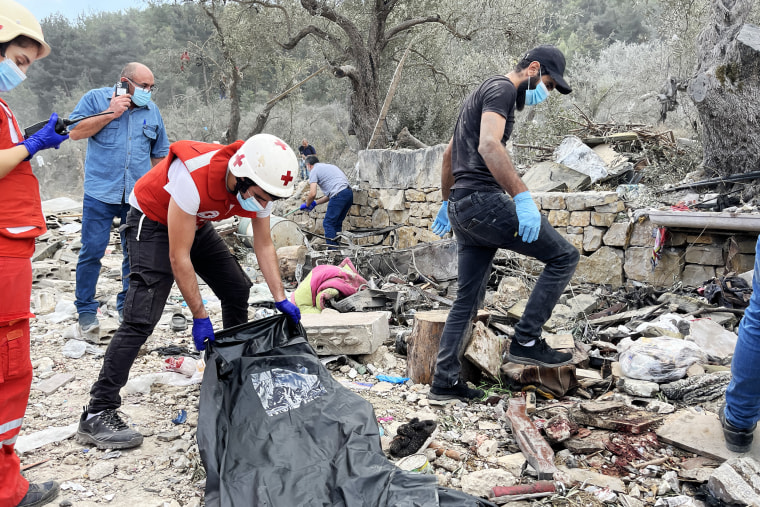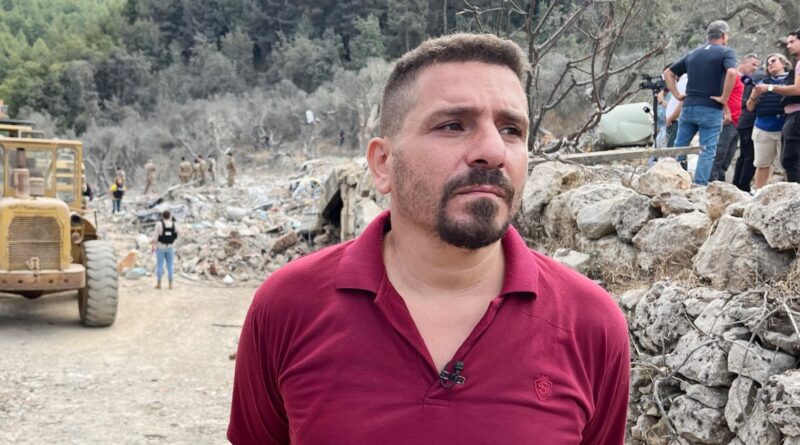Once thought a haven from Israeli strikes, a Christian town in Lebanon is now a scene of carnage
AITOU, Lebanon — The scene of carnage in northern Lebanon showed heartbreaking snippets of everyday family life.
A dead baby inside a destroyed pickup truck; a child’s severed arm buried in nearby rubble; toddler clothing and books shredded; flies swarming as officials collected body parts, some too small for body bags ending up in clear ziplock bags.
Pervading everything, the overwhelming stench of rotting flesh mixed with concrete dust at the scene where 23 people including two children were killed, according to local officials.
This was the aftermath of an airstrike Monday on the Lebanese Christian village of Aitou that Israel said had targeted a position held by Hezbollah, the Lebanese militant group.
Until then, this region of hilly olive groves and winding, sea-view roads had been a relative haven, one that felt far away from the war dominating Beirut and the country’s south.
Just last week, the area “was calm; everything was quiet,” Illy Edwan told NBC News as he surveyed the wreckage of his villa, which was reduced to rubble in the blast, its insulation and inner structure ripped to pieces, an adjacent vehicle twisted open like a burnt pretzel.
“My house used to be three-story, but look at it today,” he added.

Surrounding homes had glass and twisted metal strewn across their patios. Some nearby olive trees, laden with fruit ahead of the upcoming harvest, were also destroyed, their green leaves covered in gray soot from the explosion.
Hezbollah doesn’t usually have a presence here. But Edwan, who was not at home at the time of the bombing, said an official from the group had been visiting houses donating money to displaced people, some of whom had fled from southern Lebanon to escape the Israeli invasion, and asking about their concerns.
The Israel Defense Forces said in a statement that it had struck “a target belonging to the Hezbollah terrorist organization in northern Lebanon,” and that the reports of civilian casualties were “under review” and “being examined.”
Calling for “a prompt, independent and thorough investigation,” Jeremy Laurence, a spokesperson for the United Nations high commissioner for human rights, said Tuesday that his organization had “real concerns” about the strike with respect to the “laws of war and principles of distinction, proportion and proportionality.”
Since Oct. 8, 2023, the day after Hamas launched its terror attacks on Israel, in which officials say 1,200 people were killed and around 240 were taken hostage, Hezbollah has been firing rockets and other projectiles into northern Israel, in solidarity with the Palestinian militant group. Israel’s offensive in Gaza since then has killed more than 42,000 people, according to health officials in the enclave.

And for months, as the pair traded tit-for-tat attacks, more than 60,000 people were displaced from their homes in northern Israel, according to government tallies — and Prime Minister Benjamin Netanyahu and other Israeli ministers cited this as the reason for launching a military campaign into southern Lebanon last month.
More than 2,300 people, including 127 children, have been killed in Lebanon since the Oct. 7 attack and an estimated 1.2 million have been displaced, according to Lebanese officials. A large number of these left their homes after Israel began its widespread bombing on Sept. 17, when pagers belonging to members of Hezbollah exploded across the country.
Since then, the Lebanese have suffered “the worst humanitarian crisis in decades,” the U.N.’s humanitarian office said in a statement Tuesday.
Lebanese people are “fleeing with almost nothing,” said Rema Jamous Imseis, Middle East director of the U.N.’s refugee office, adding that they were “being forced out into the open, they’re sleeping under the skies as they try to find their way towards safety and support.”
Some are choosing an unlikely route.
The port of Tripoli, 10 miles from Aitou, isn’t known for its beauty, much less its accommodations for civilian passengers. The grimy industrial hub is soundtracked by the banging of heavy machinery and creaking 40-foot containers being unloaded from ships docked here.
Still, hundreds of people are now turning to the city as one of the only ways to escape their homeland. Since Sept. 20, this previously passengerless terminal has launched seven ships to the southern Turkish port of Mersin, each vessel carrying up to 300 passengers paying $350 a head.
“People are scared, so they leave the airports and come to us, to the ships here,” said Mohamed Youssef, 57, the owner of a ship. “Everyone is exhausted, and the situation is very complicated,” he added. “So whoever can afford it travels. They travel however they can. If they can’t, they will remain in Lebanon.”

It is a diverse exodus, evidenced by dusty vehicles from the 1990s alongside shiny Range Rovers and Porsches. While some wore smiles while completing their bureaucratic stamp work, for others the reality of their impending journey began to set in.
Nermin Khair, 28, said she had no plans to return with her daughter, Sandy, 3, and is temporarily leaving behind her husband, who said he will try to join her in a month’s time.
“It is my country but it makes us tired,” she said. “We left everything: We left our dreams, we left our stuff, we left everything here — my sisters, my brothers, everyone here.”
Her husband, Bashar Hanouf, 33, held his daughter’s hand as she and her mother walked the gangplank up to the waiting vessel. It’s up to him to figure out how, and when, he’ll get to see them again.
“I hate Lebanon. Every year we have a new situation,” he said. The family, he added, “is looking for a better life for my wife, my daughter. We have to.”
Matt Bradley and Ziad Jaber reported from Aitou and Alexander Smith from London.





